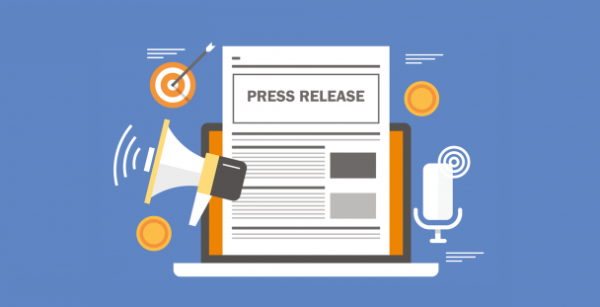Struggling self-employed pressed to double-check eligibility for grant
The Low Incomes Tax Reform Group (LITRG) is encouraging self-employed people impacted by COVID-19 to double-check whether they are entitled to the first round of the Government’s Self-Employment Income Support Scheme (SEISS) grant before the claim window closes on 13 July.1

HMRC used their IT systems to identify potential SEISS claimants in May 2020 and contacted them to explain about the first round of the grant. But LITRG is worried that there may be some people who did not receive this correspondence, for example because they did not tell HMRC about a change of address. LITRG is also concerned that some people may have thought they were ineligible for the grant because, when the scheme opened, their business had not been ‘adversely affected’2 as a result of COVID-19.
Victoria Todd, Head of LITRG, said:
“The self-employed, and individual partners trading in partnerships, whose businesses have been affected adversely by COVID-19 but who are yet to claim the first SEISS grant, should check urgently whether they are eligible. It is unfortunate if potential claimants miss out because they did not realise there was a deadline or because they were unsure if they could claim.”
There is also some confusion about the time periods for the SEISS grants. The Government initially said that the scheme would ‘cover the three months to May’,3 so this was taken to mean by many that a self-employed business or partnership had to be affected adversely during the three-month period of March, April and May to claim the first grant. Those affected in June, July and August assumed they would qualify for the second grant. HMRC then amended their guidance4 to state that if a business has been adversely affected because of COVID-19 at any point up to 13 July, they will qualify for the first SEISS grant (assuming all other conditions are met). Only if a business is adversely affected by COVID-19 from 14 July can they claim a second grant.
Businesses which have seen a downturn in trade more recently (for example a sole trader having to take sick leave because of COVID-19) might have thought they were ineligible for the first SEISS grant when the claim process opened in May. LITRG is concerned that those in this position may not have subsequently realised they are eligible for the grant.
Victoria Todd said:
“HMRC have announced some important changes to the first SEISS grant and potential claimants need to be aware of these or otherwise risk missing out on important government support. We are urging anyone who has not claimed the first SEISS grant, either because they thought they were not eligible or because they think they are eligible for the second grant instead, to check their eligibility carefully. The opportunity to claim the first grant will be lost after 13 July.
“This is clearly a difficult time for many small businesses, and we recommend that HMRC publicise widely the first SEISS claim closing date and clarify the general misunderstanding about the claim periods to which the SEISS grants relate.”
Notes for editors:
1. Claims for the first SEISS grant, for the self-employed and those in trading partnerships whose businesses have been adversely affected by the coronavirus outbreak, have been possible from 13 May. When the SEISS grant was first announced, no end date was given for claiming it. There is now a fixed deadline of 13 July for claiming the first SEISS grant (see also note 3 below). Claims for the second and final SEISS grant will open in August. At the time of writing, the closing date for claims to the second and final grant is not yet known.
2. One of the eligibility conditions for the SEISS grant is the business must have been adversely affected because of the coronavirus outbreak. At the time of writing, GOV.UK provides the following examples:
- you’re unable to work because you:
- are shielding
- are self-isolating
- are on sick leave because of the coronavirus
- have caring responsibilities because of the coronavirus
- you’ve had to scale down or temporarily stop trading because:
- your supply chain has been interrupted
- you have fewer or no customers or clients
- your staff are unable to come in to work
Further examples are given at www.gov.uk/guidance/how-different-circumstances-affect-the-self-employment-income-support-scheme#adversely-affected-examples
3. www.gov.uk/government/news/chancellor-gives-support-to-millions-of-self-employed-individuals, 26 March 2020.
4. The GOV.UK guidance changed on 29 May to announce the 13 July deadline to claim the first SEISS grant: www.gov.uk/guidance/claim-a-grant-through-the-coronavirus-covid-19-self-employment-income-support-scheme
5. LITRG publishes guidance on the SEISS here: www.litrg.org.uk/tax-guides/coronavirus-guidance/coronavirus-self-employment-income-support-scheme
6. Low Incomes Tax Reform Group
The LITRG is an initiative of the Chartered Institute of Taxation (CIOT) to give a voice to the unrepresented. Since 1998 LITRG has been working to improve the policy and processes of the tax, tax credits and associated welfare systems for the benefit of those on low incomes.
The CIOT is the leading professional body in the United Kingdom concerned solely with taxation. The CIOT is an educational charity, promoting education and study of the administration and practice of taxation. One of our key aims is to work for a better, more efficient, tax system for all affected by it – taxpayers, their advisers and the authorities. The CIOT’s work covers all aspects of taxation, including direct and indirect taxes and duties. The CIOT’s 19,000 members have the practising title of ‘Chartered Tax Adviser’ and the designatory letters ‘CTA’, to represent the leading tax qualification.
Contact CIOT External Relations on 0207 340 2702 / Out of hours contact: George Crozier, 07740 477 374
